Five Decades in Civil Rights Leadership
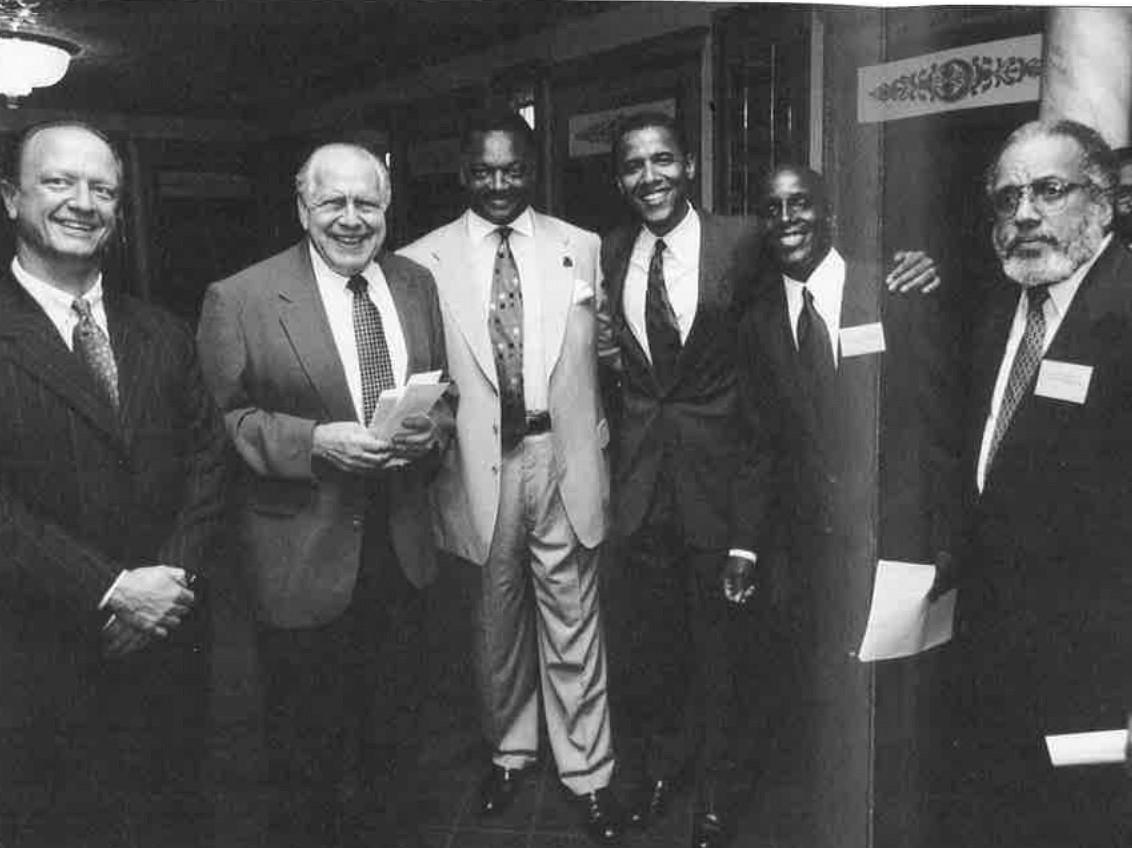
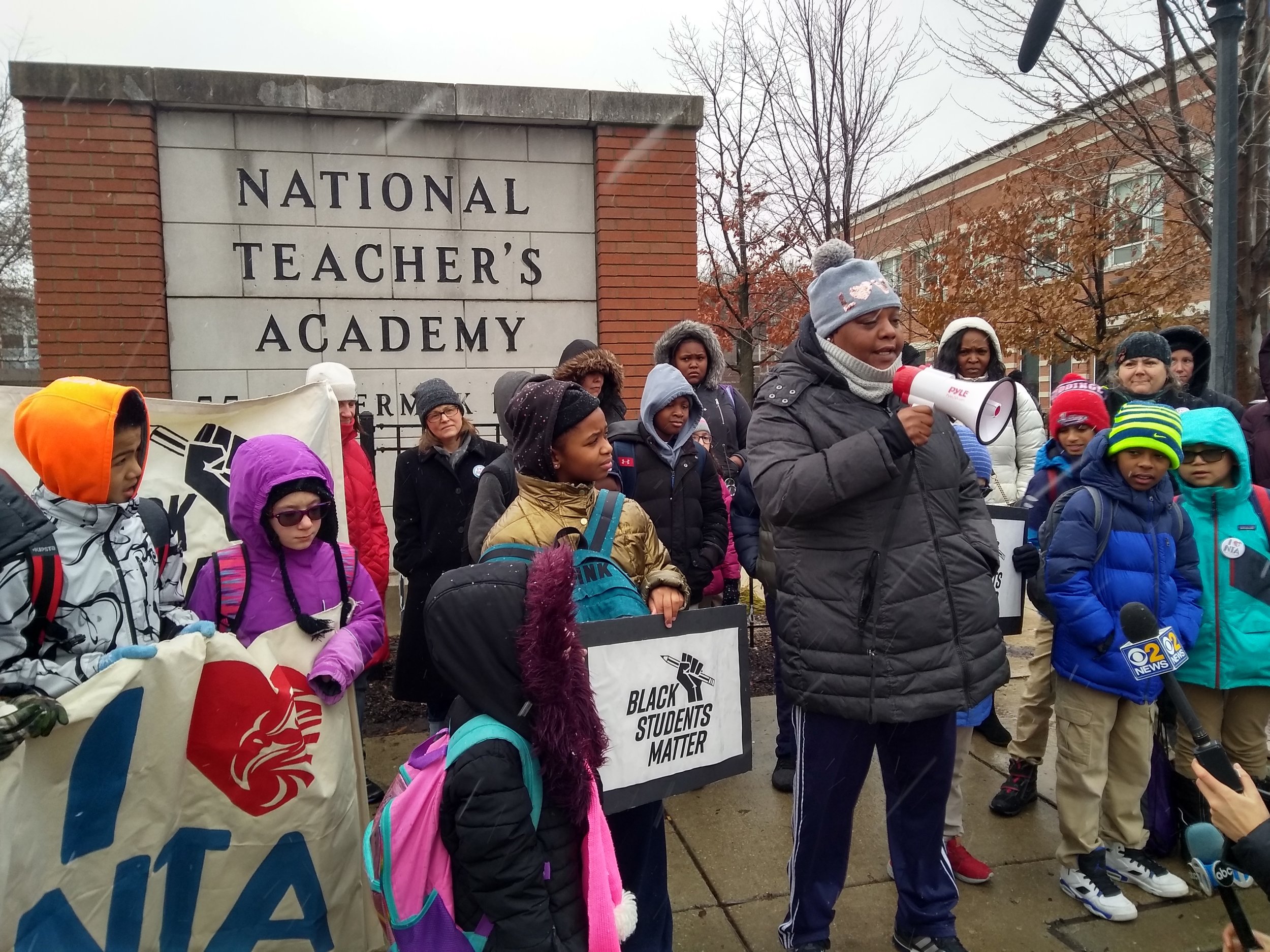
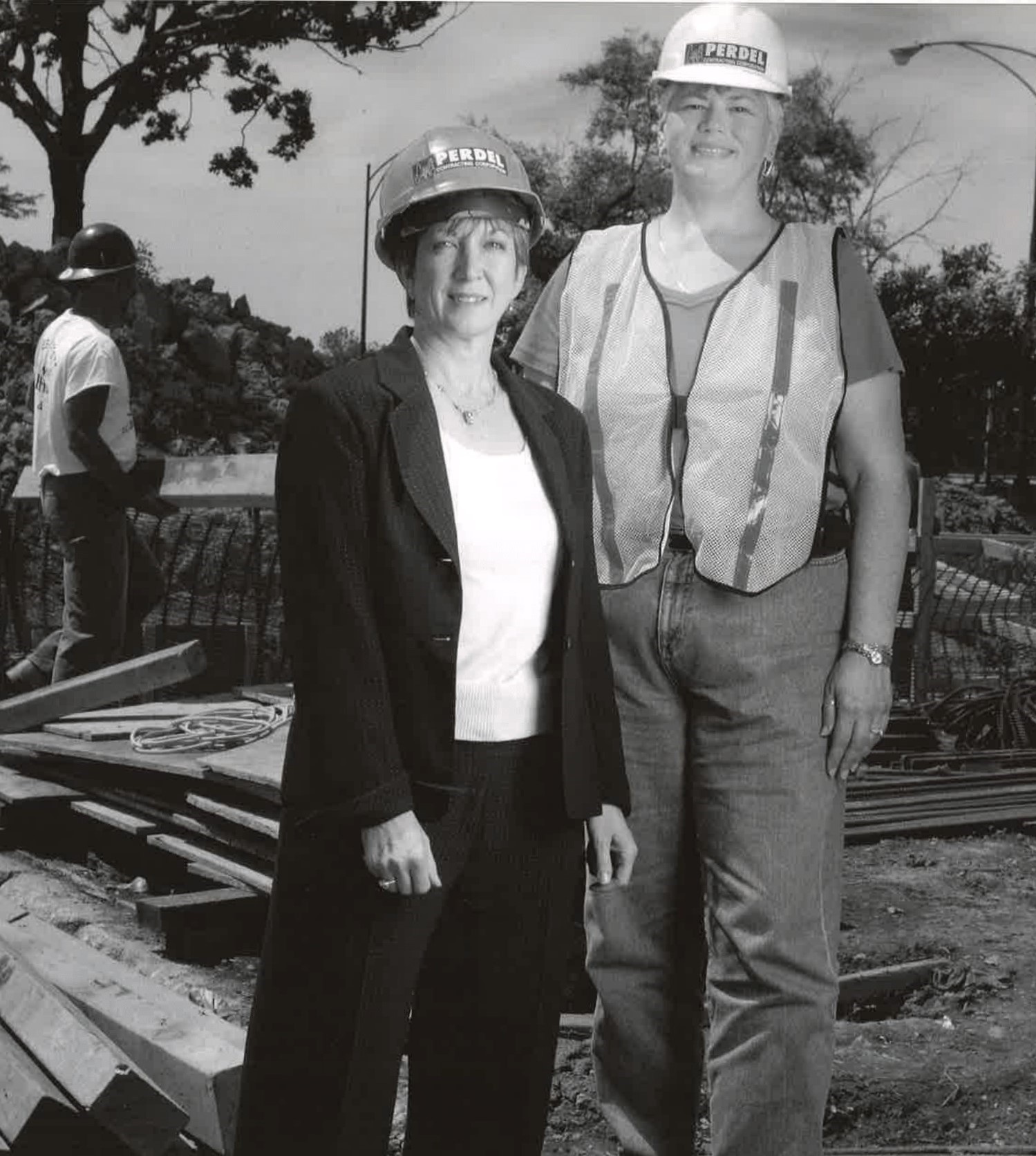
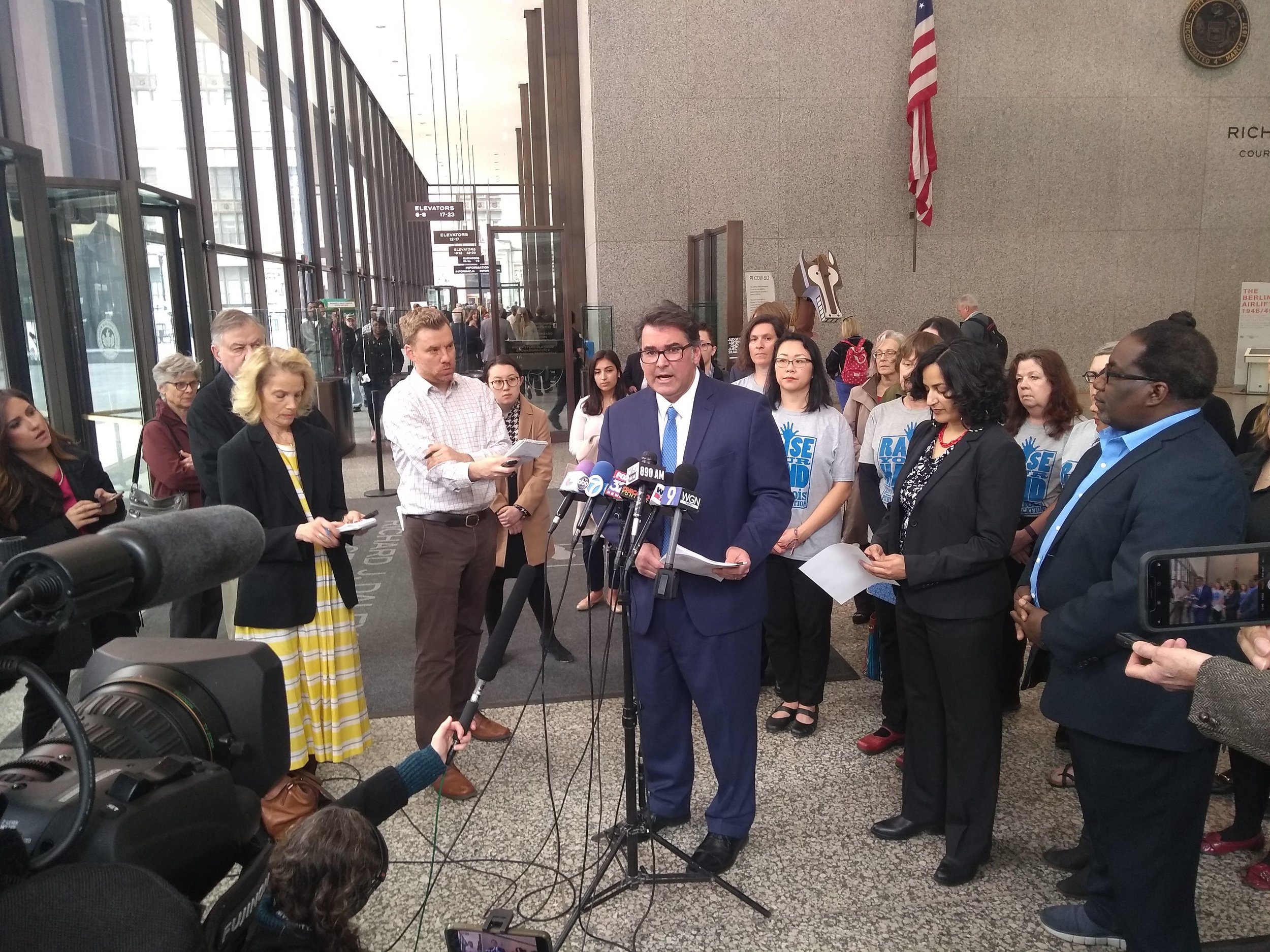
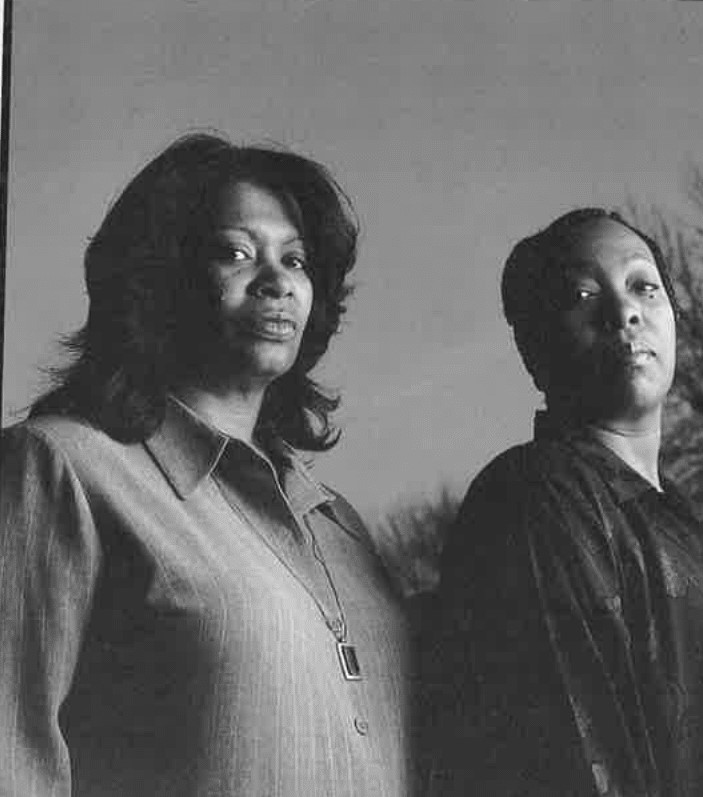
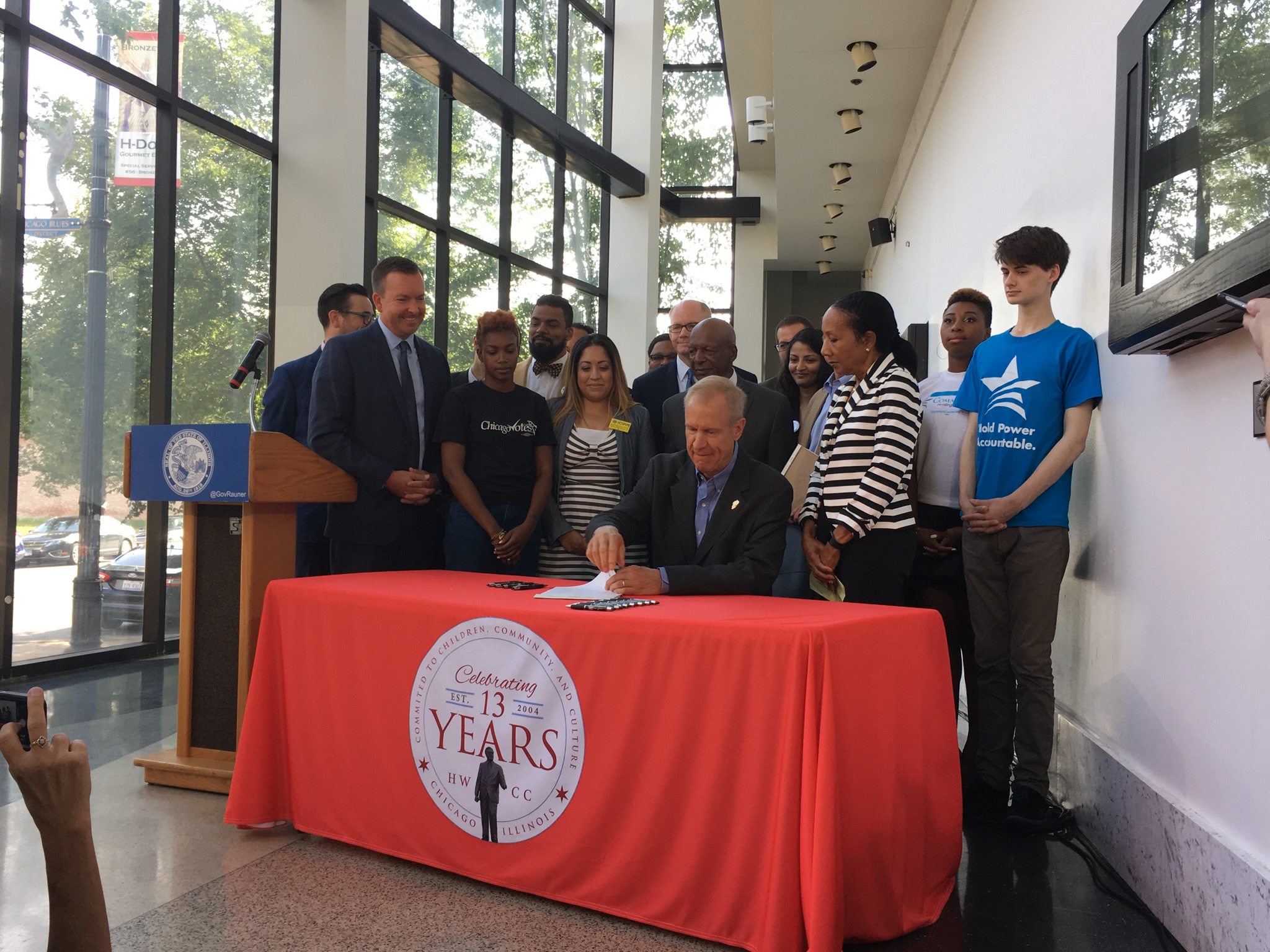
Our History
In the summer of 1963, civil rights activists throughout the South risked their lives to end discrimination and segregation in education, housing, employment, and voting. At President Kennedy’s request, nearly 250 lawyers met at the White House where the President urged them to use their legal training to move the struggle for the protection of civil rights from the streets to the courts. As a result, the national Lawyers’ Committee for Civil Rights Under Law and its regional affiliates were born.
In 1966, Dr. Martin Luther King, Jr. opened the northern front in the civil rights movement. As part of the Chicago Freedom Movement’s push for open housing, Dr. King organized freedom fighters to march in all-White southwest side neighborhoods where they were met by violent mobs. These actions laid the groundwork for the country’s passage of the Fair Housing Act. In 1969, in the aftermath of riots, violence, and mass arrests in response to Dr. King’s assassination, and political protest and police brutality at the 1968 Democratic National Convention, a group of Chicago attorneys and law firms formed the Chicago Lawyers’ Committee for Civil Rights Under Law.
Since that time, the organization has operated as Chicago’s preeminent non-profit, civil rights legal organization, producing important victories in fair housing, hate crime, education, and other cornerstone civil rights cases. Among our major successes are the nationally recognized Lewis v. the City of Chicago race discrimination class action suit, where the federal court required the city to hire by-passed black firefighter applicants and awarded over $50 million in damages for pensions and loss of opportunities to be hired, and the Coiley v. Delawder case, where the state court awarded $1.44 million to three young Black men who were brutally beaten by a mob of white men in a racially motivated and unprovoked attack near Manteno, Illinois.
Highlights of civil rights wins:
1969
Chicago Lawyers’ Committee convinced the U.S. Attorney General to investigate the deaths of Black Panther leaders Mark Clark and Fred Hampton, who were killed during a police raid.
The investigation led to the indictment of the State’s Attorney and others.
1970
Using data collected by two major universities, attorneys filed a federal class action challenging city-wide disparities in the per-pupil instructional expenditures made in Chicago’s Black and White schools. After the case was filed, the Board of Education equalized expenditures.
1974
Chicago Lawyers’ Committee represented a class of over 1,200 Black South Side homeowners who purchased new homes at inflated prices under land installment contracts, alleging that the developers discriminated against them by exploiting the racially divided housing market.
1982
After nine years, attorneys successfully settled the N.O.W. v. City of Chicago equal pay case, benefiting hundreds of women janitors and clerks through salary upgrades, retroactive pension benefits, and $4.5 million in back-pay.
1984
Voters of color won an important victory in Ketchum v. Chicago City Council when the 7th Circuit held that an aldermanic redistricting plan had been designed to dilute minority voting strength.
1992
Attorneys’ successful lawsuit claiming discrimination by race, national origin, and sex in the Chicago Police Department led to hundreds of officers receiving overdue back-pay and seniority rights.
1995
Chicago Lawyers’ Committee secured a significant settlement in Ramos v. Kraft, a vicious 10-year campaign of harassment and hate crime garnering international media attention and bringing much-needed attention to the breadth of hate crime in America.
1999
Chicago Lawyers’ Committee filed suit against the United States, US Customs, and a number of Customs inspectors on behalf of 1,300 Black women who disembarked at O’Hare International Airport and were subject to an invasive search for drugs, including strip-searches and x-rays, that violated their constitutional rights.
2003
In the landmark Wallace et al. v. Chicago Housing Authority case, the courts ruled that HUD and public housing authorities must avoid housing discrimination and actively promote equal housing opportunity.
Chicago Lawyers’ Committee represented minority and women contractors before the courts which found that discrimination by the City of Chicago impeded equal access to construction opportunities, leading to an overhaul of Minority and Women Business Enterprise programs and re-inclusion of Asian Americans, who had been removed from the program due to the pervasive model minority myth.
2005
Attorneys won a $1.3 million award in hate crime cases on behalf of three Black men for suffering racially motivated attacks by four White men that included threats of hanging and beating.
2010
Litigation by Chicago Lawyers’ Committee led to the US Supreme Court ruling unanimously in Lewis v. City of Chicago that the City’s policy for hiring firefighters discriminated against Black applicants, blocking thousands from employment. This led to new policies, new hires, and tens of millions of dollars in back pensions and damages.
2013-2014
Advocacy by the voting rights initiative of Chicago Lawyers’ Committee led to passage of legislation allowing same-day voter registration and online voter registration in Illinois.
2017
Attorneys filed suit on behalf of community organizations on the south, southwest, and west sides against then-Cook County Assessor Joseph Berrios. The suit exposed a property tax system that systematically imposed higher rates on low-income Black and Latinx neighborhoods than wealthy White neighborhoods for decades.
2018
Chicago Lawyers’ Committee joined with parents in successfully preventing the closing of National Teachers Academy (NTA), a top-tier school serving majority low-income Black students. This was the first time that a court has ever enjoined a CPS school closure based on a racial discrimination claim.
2019
Attorneys filed suit on behalf of community organizations challenging the City of Chicago’s unlawful and racially discriminatory plan to divert up to $1.3 billion in public money via Tax Increment Financing (TIF) to subsidize a luxury development in Lincoln Yards.
Today, the civil rights battle continues in policing, housing, voter access, education, and other aspects of public life. With entrenched segregation and deepening poverty in parts of our city and state, the organization operates with an even sharper focus on racial equity and community empowerment. Chicago is ground zero in the fight to make America fulfill its promise of democracy and equal justice for all under the law. Chicago Lawyers’ Committee answers the call to create a new narrative for Chicago and beyond so that residents in all neighborhoods can thrive.
For 50 years, we have delivered on the promise to be the legal flank of Chicago’s civil rights movement. Our work has placed us at the forefront of landmark legal decisions, pursuing high-impact litigation and policy advocacy to ensure that Chicago is a just city for all.






